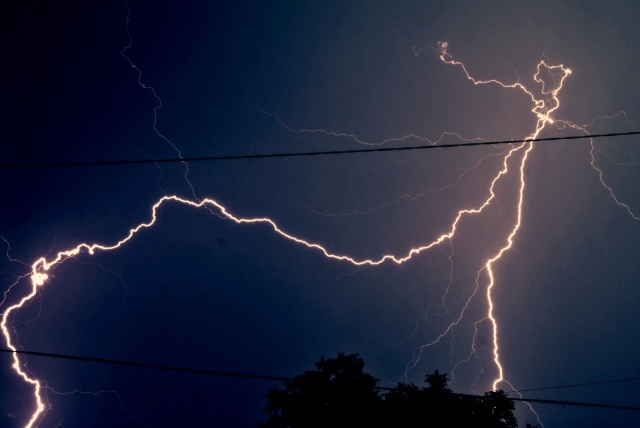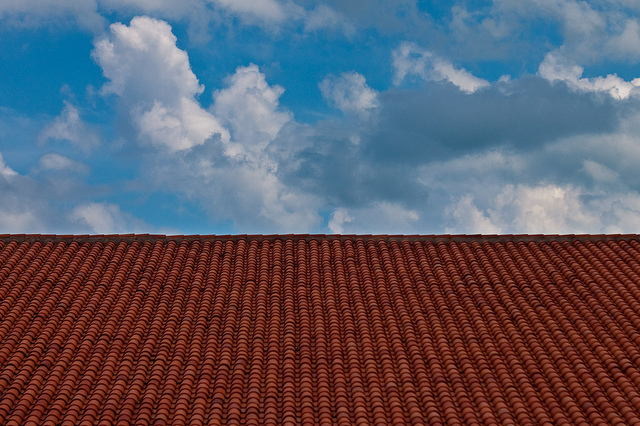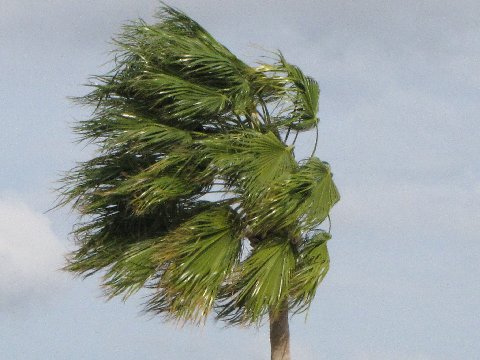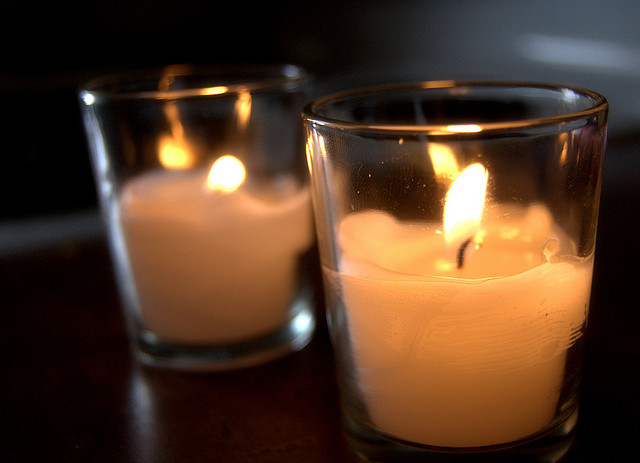
Storm by Slawek Puklo
Although strong summer storms aren't unusual, people often get caught by surprise by their devastating effects. Recent storms (which left many Ontario residents in the dark a few days ago), were yet more proof of nature's untamed strength. Nevertheless, there are some preventive measures you can take to protect your property against foul weather. See what you can do to make your home safer.
Precautions First
Your home should be your castle — a place where you can feel safe at all times, a welcoming place of contentment and peace. People usually spend a lot of time and money to make sure their homes are protected against burglars and thieves, but they sometimes don't realize how much damage natural forces can cause.
Even if they do, they will often go no further than insuring their property against damages triggered by environmental forces. While this isn't a bad idea by any means (especially in areas where the risks of taking such damages are high), weather-proofing your home may save you a significant amount of paperwork and effort — and, of course, a huge amount of worry.
When the storm is raging and trees are falling right at your roof and/or electric power lines surrounding your home, it's already too late — and that's why taking preventive measures is the first thing to do.
Firstly, listen to storm warnings and never underestimate them — even if the storms are not expected to be strong. Weather is often very unpredictable, and a mild summer storm can quickly turn into a havoc-wreaking tempest. Make sure that you and your home won't get caught by surprise.
Shield Your House
There are three main ways in which storms can cause harm to your home: wind, rain, and lightning.

Roof by Fil Al
The best way to protect the house against the first two is to keep it literally "shielded." For example, a good roof can take a considerable amount of natural damage, so make sure there are no cracks, leaks, or loose shingles, etc. It's also important to keep the roof clear of any kind of debris. The same applies for walls and interior ceilings: walls soaked with water can cause a wide range of damage, ranging from mould to decreased structural stability, so fix any leaks you're able to find.
Additional advice: if you're thinking of reconstructing your property, you might consider metal roofing. Contrary to a popular belief, it has no greater chance of being struck by a lightning. In fact, a metal roof helps to prevent a fire because it dissipates electrical charges, and it is also non-combustible.
It's also essential to provide your windows with storm shutters or any similar kind of protection. Apart from guarding your windows from the damage caused by strong winds and flying debris, they also improve their thermal efficiency and add a decorative touch to your exterior. You should also consider installing special storm windows and storm doors.As a short-term and quick solution, you can cover the windows with plywood sheets — simply nail them at the body every few inches.
Outdoor Preventive Measures
Unless you live in an area of hurricanes or tornadoes, you probably don't have to worry about your roof being blown off. However, strong wind during a storm is still able to break branches, or even cast whole trees down. A fallen tree may cause severe damage to your house or the power lines leading towards it. If you have trees in your garden, make sure they're trimmed properly. It's best to get rid of all tree limbs near windows and power lines.

Strong Winds by Kathy
Rainwater and humidity can rot wood, which presents a danger to porch railings and steps. Don't forget to check them regularly and fix any materials that look weak.
Flooding doesn't only concern people near rivers. Heavy storm rainfall can cause water leaking into your basement. To prevent this, check for appropriate drainage around your home. If there are ditches around your house, make sure they're clean of debris. The same applies for roof gutters, which also need to be checked for damage and debris.
It's also a good idea to invest in zero flood barriers and some silicon sealant, which can be used on door and window rims to stop water seepage when necessary.
Be Ready When The Lightning Strikes
Lightning is probably the most feared danger of a storm, but it's also the least usual. Nevertheless, its power can be immense when it strikes.
When there are signs of an approaching storm, the first thing to do is to simply unplug all the electronic devices in the house to prevent surge damage. It's the most basic, most foolproof, but also the most often overlooked method of protection against lightning. Another option is to invest into surge protectors, which should effectively protect your appliances in most cases.

Candles by Mike Inber 1973
Every house should have a lightning protection system. Most of these systems include a network of lightning rods, metal conductors, and ground electrodes designed to provide a low resistance path to the ground for potential strikes. This is probably no news to you, but did you know that there are similar means of protection available for trees as well? Check out this page to learn more about protecting your trees from lightning.
Finally, be prepared for a blackout. As we've witnessed recently, storms usually cause a lot of damage to power lines, which sometimes results in massive blackouts. Though you can do nothing to protect power lines outside your own backyard, you can always buy a standby generator for your house. It's a backup electricity system that automatically starts itself immediately when its transfer switch detects a power loss.
Although, on the other hand, spending an evening by candlelight has its magic as well!





